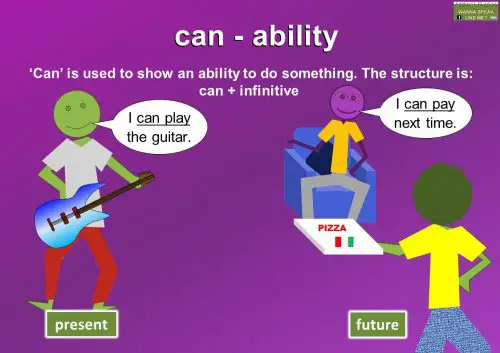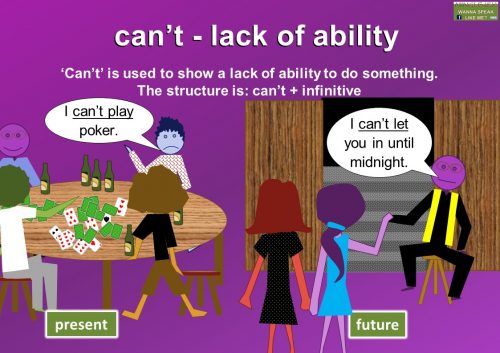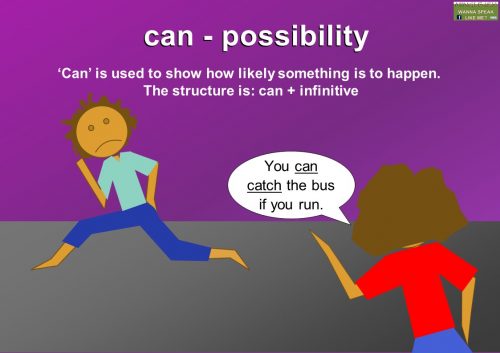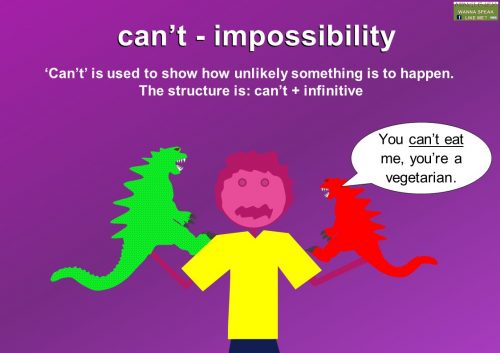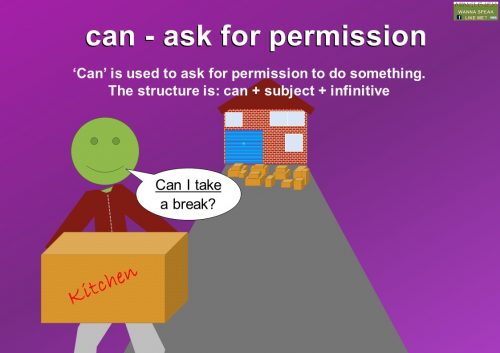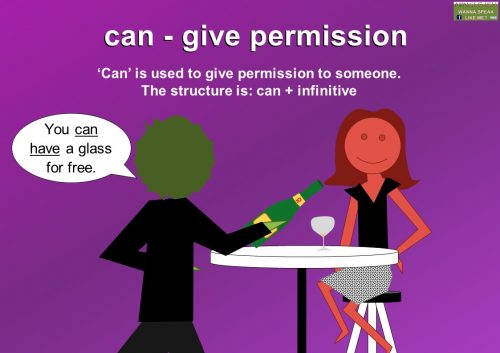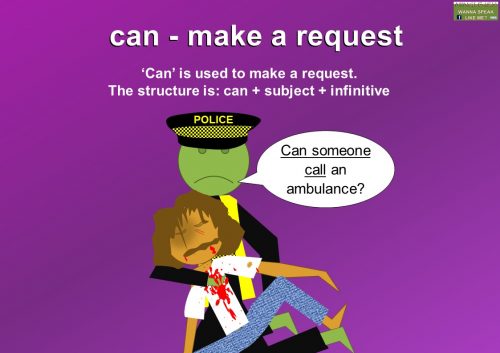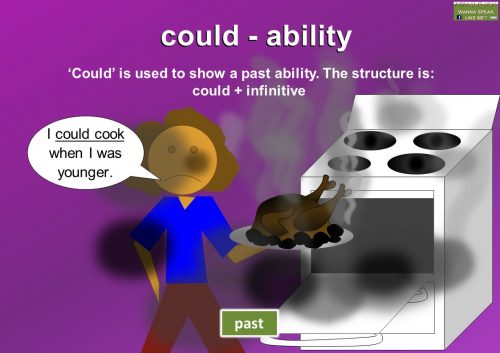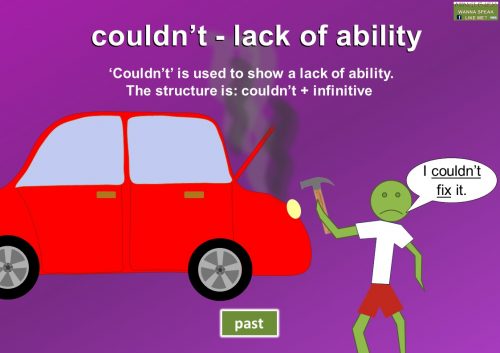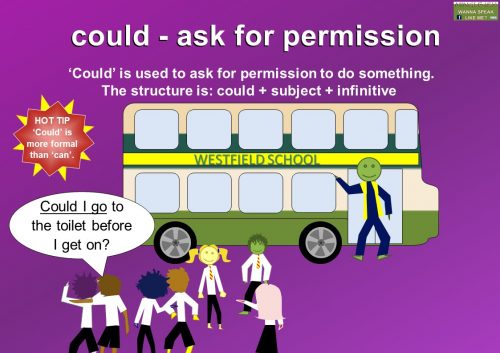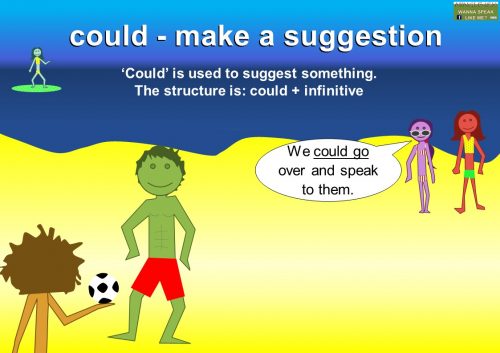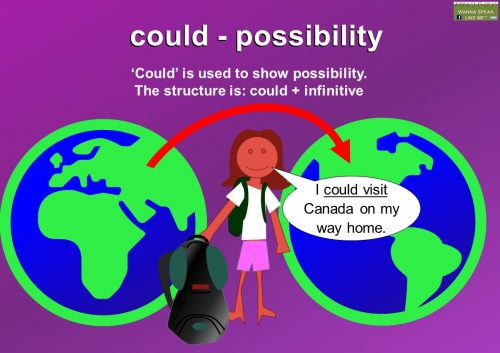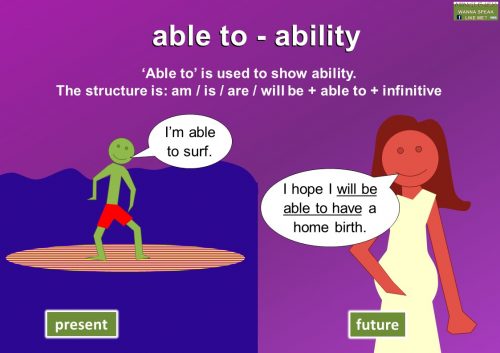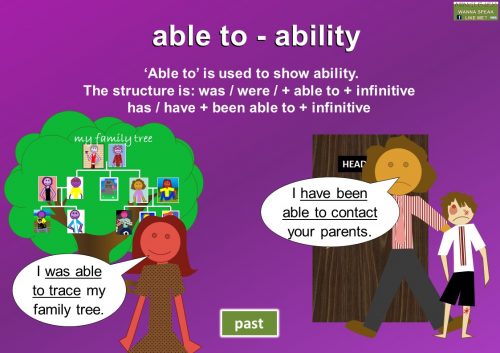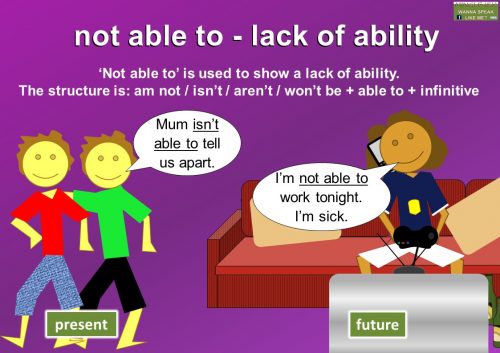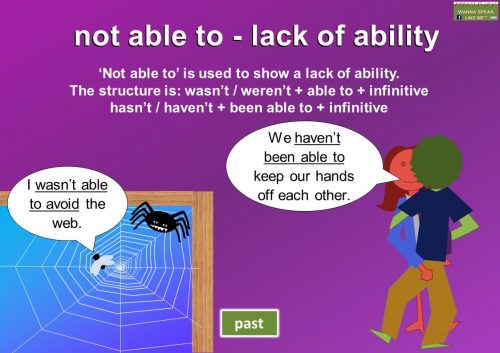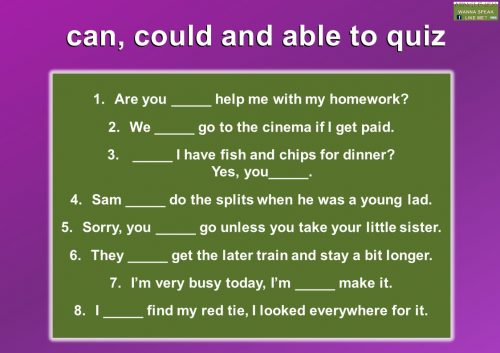Can, could and able to are similar and can be used in various ways. Let’s take a look at each one in detail.
modal verb – can
Can you think of any ways we use ‘can’ in everyday speech. I can think of a few.
‘Can’ can be used to show:
- ability (something you are able to do)
- permission (allow someone to do something)
- possibility (likelihood of something happening)
- request (ask for something)
Take a look at the pictures below, you’ll find the function of ‘can’ as a modal and examples in everyday use.
modal verb – could
You could look at these slides if you want to improve your knowledge of modals.
‘Could’ can be used to show:
- ability (something you are able to do)
- lack of ability (something you are not able to do)
- permission (allow someone to do something)
- possibility (likelihood of something happening)
- suggestion (offer a solution)
Take a look at the pictures below, you’ll find the function of ‘could’ as a modal and examples in everyday use.
be able to
Able to is not technically a modal verb, it is actually just the verb ‘to be’ + the adjective able + the preposition to. It’s used in a similar way to ‘can’ and ‘could’ so I figured there’s no harm is adding it to this section. It’s quite a common phrase in English, so you may as well take a look.
See if you are able to understand the uses of ‘able to’.
‘Able to’ can be used to show:
- ability (something you can do)
- lack of ability (something you can’t do)
Take a look at the pictures below, you’ll find the function of ‘able to’ and examples in everyday use.
modal verbs quiz – can, could, able to
It’s quiz time! Can you put everything you’ve learnt on this page into action? Are you able to score full marks? I’ll give you a clue, some questions can have more than one possible answer.
answers : 1. able to 2. can/could 3. can/could, can 4. could 5. can’t 6. can/could 7. not able to 8. couldn’t
